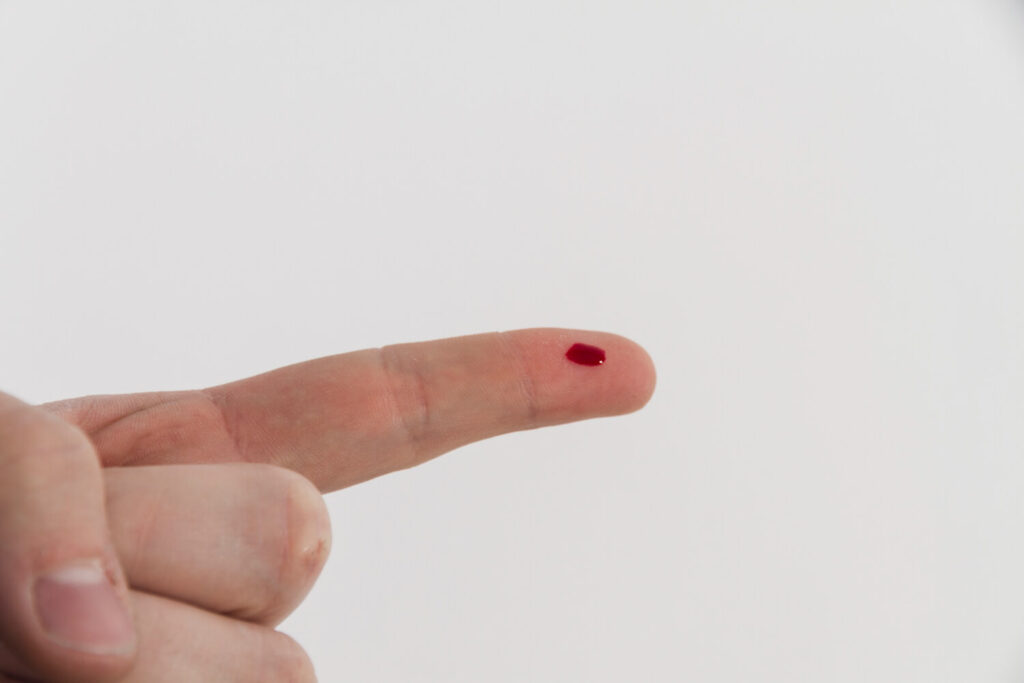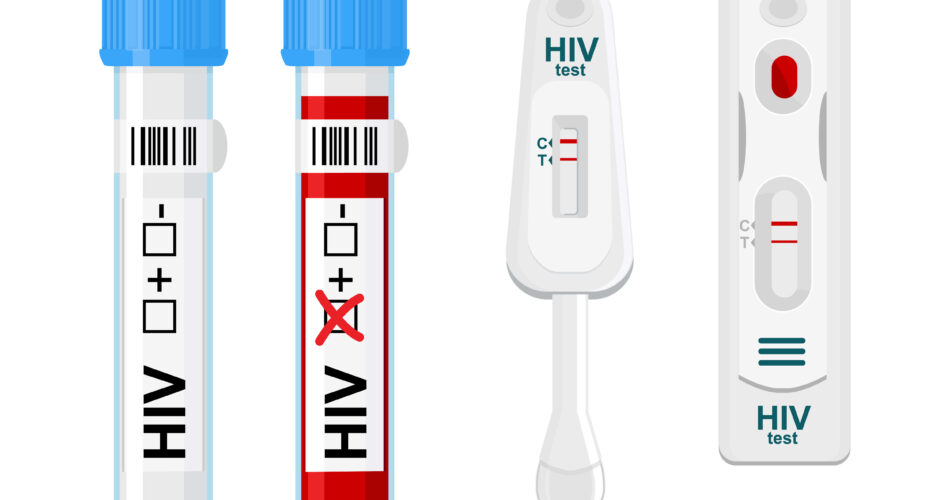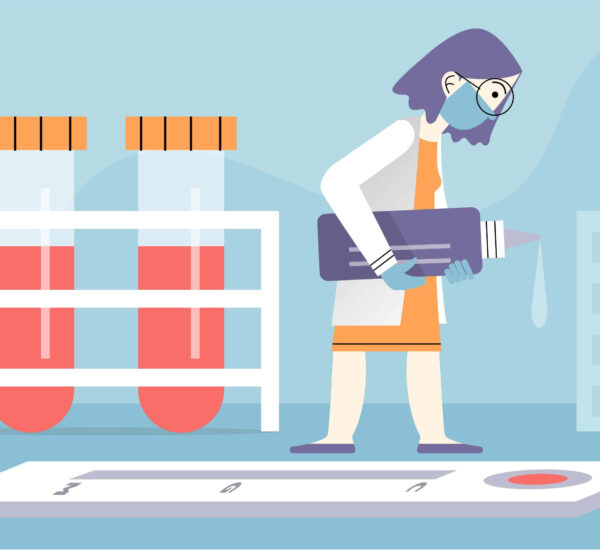The increasing threat of HIV infection globally calls for an increase in awareness on how to deal with this virus. Fortunately, in the fight against HIV/AIDS, the availability and accessibility of an HIV test kit plays a crucial role. This kit provides a convenient and confidential way for individuals to self-test for HIV in the comfort of their own homes or at healthcare facilities. In short, it allows people to be more proactive towards their health with this access to healthcare.
Having access to HIV test kits is a game-changer for every individual at risk of HIV. However, it is vital to know how to use the test kits and which type of HIV test kit to use. In that case, let’s dwell deeper to understand this topic further.
What is an HIV Test Kit?

At its core, an HIV test kit is a tool designed for HIV screening. It can detect the presence of antibodies or antigens associated with the human immunodeficiency virus (HIV). In other words, it helps determine if a person is HIV positive.
However, some tests may not be able to detect the virus right away. There can be various reasons behind this result. One of them can mean the body hasn’t yet produced antibodies associated with the development of HIV. Other times, it can involve the misuse of HIV test kits, resulting in a problem with the result.
So, when it comes to using the HIV self-test kit, it is essential to follow the instructions meticulously to avoid problems with the result. Furthermore, individuals can visit their local health centers for better assistance on its usage.
Components of an HIV Test Kit
For a better understanding of HIV test kits, here’s a simple list of what to expect in a kit. While the specific components may vary between test kits, most HIV test kits typically include several common elements.
An HIV test kit may include the following:
- Test Device: This is the main component of the test kit and contains the necessary reagents and materials to detect HIV antibodies or antigens.
- Lancet: A small, sterile needle or lancet is included in the kit to obtain a blood sample from the individual.
- Buffer Solution: The buffer solution can dilute the blood sample to prepare it for testing.
- Disposable Alcohol Swab: It is used for cleaning the area where the blood sample will be taken.
- Capillary Tubes: Standard containers used for the collection of own specimens (whole blood, oral fluid, etc.)
- Plastic Dropper: The dropper is used to collect and transfer the blood sample onto the test device.
- Instruction Manual: Clear and comprehensive instructions are provided to guide individuals through the testing process.
It is important to note that while HIV test kits provide a convenient and accessible method for HIV testing, they should not replace professional medical advice and follow-up care. If an HIV test kit yields a positive result, it is essential to seek confirmation and further guidance from a healthcare professional.
Different Types of HIV Test Kits and Their Reliability

As mentioned, HIV test kits have been a great solution for HIV screening as it allows health experts to identify the current number of cases for this condition. HIV is known to target the immune system of the patients. When that happens, it can lead to the development of other illnesses like cancers, infection, tuberculosis, etc. That’s why early detection is a must, which the test kit can provide.
Currently, there are several types of HIV test kits available online, in pharmacies, or even in local health centers. Let’s identify these tests below, and understand which is most suitable for self-testing.
Home HIV Test Kit
The first type of HIV test is the home HIV test kit. This home testing option is designed to be used by individuals in the privacy of their own homes. It utilizes a blood sample obtained through finger-prick or oral fluid collected through a swab. Home testing kits offer convenience, anonymity, and quick results, making them a popular choice.
Reliability of Home test kits for HIV
It’s important to note that while HIV home testing kits are convenient and provide quick results, they may have limitations in terms of accuracy and sensitivity compared to laboratory-based tests. Situations can occur, like product misuse or not following the window period, affecting the test results.
However, patients can visit some healthcare workers for assistance with their home testing kits. That way they can perform the test at home correctly, and receive the counsel needed for interpreting the results.
Rapid HIV Test Kits
Another type of HIV test kit is the rapid test kit. It is specifically designed to provide results within a short period, usually within 20 minutes or less. The kit can detect HIV antibodies or antigens in a blood sample obtained through finger-prick or oral fluid.
Reliability of Rapid Tests for HIV
Due to its instant results, rapid diagnostic tests are common tests provided in the community setting. That’s why patients seeking HIV test assistance from health workers in their local health centers typically receive rapid HIV test kits. However, it’s essential to recognize that rapid tests may have a slightly higher chance of false positives or negatives.
Laboratory HIV Test Kits
Lastly, individuals can try undergoing laboratory HIV test kits, which are more complex and typically require professional expertise to perform and interpret the results. The blood test is the common lab test utilized for diagnosing HIV. There are different techniques experts use, such as enzyme immunoassays (EIAs), nucleic acid testing (NAT), or Western blot assays. Laboratory testing is often used for confirmatory purposes, particularly when initial results from other test kits are ambiguous or need further investigation.
Reliability of Lab Tests for HIV
One of the key benefits of laboratory HIV test kits is their high sensitivity and specificity, making them the gold standard for HIV diagnosis. These tests are crucial in confirming HIV status, especially in cases where initial rapid or home test results are inconclusive. Furthermore, laboratory testing allows for comprehensive screening tests to monitor viral load and disease progression. It is essential for effective HIV management and treatment planning.
The Role of Window Periods in HIV Testing
Understanding window periods is essential when using HIV test kits. Different HIV tests have varying window periods, depending on their sensitivity and the stage of infection being targeted. It is important to refer to the instructions provided with the test kit to determine the appropriate time to test after potential exposure.
- rapid tests – 18 days to 90 days
- NAT lab test – 10 days to 33 days
- antibody test – 23 days to 90 days
How to Use an HIV Test Kit
Preparing for the Test
Before conducting the HIV test, it is important to carefully read and follow the instructions provided with the test kit. Certain precautions, such as refraining from eating or drinking for a specified time, may be necessary to obtain accurate results. Additionally, individuals should ensure they have a clean and well-lit area to perform the test, along with all the components from the kit.
Steps in Conducting the Test

The specific steps involved in using an HIV test kit may vary depending on the type of kit used. However, the general process usually involves the following steps:
- Clean the area where the blood sample will be taken with the provided alcohol swab.
- Follow the instructions to obtain the blood sample using the lancet.
- Use the plastic dropper to collect the blood and transfer it to the designated area of the test device.
- Apply the buffer solution as directed by the instructions.
- Wait for the specified amount of time for the test results to develop.
Interpreting the Results
Generally, HIV test results are classified as either positive, negative, or invalid/inconclusive. A positive result indicates the presence of HIV antibodies or antigens, while a negative result suggests their absence. In the case of an invalid or inconclusive result, it is recommended to repeat the test or consult a healthcare professional for further evaluation.
Frequently Asked Questions
What are the trusted brands used for HIV self-tests?
Several brands offer credible HIV test kits. Individuals can find them online, in a pharmacy, or in other stores. Try to check the brands below to acquire credible testing kits for HIV.
Some of the known brands are the following:
- Mylan HIV self test
- Insti HIV self test
When to consider using an HIV test kit?
It is recommended to use an HIV test kit if you have engaged in high-risk behavior, such as unprotected sex or sharing needles, receiving blood transfusion with HIV components, etc. Aside from these main risk factors, individuals with existing STIs like syphilis, herpes, and others are prone to developing HIV.
If you suspect that you may have been exposed to the virus, or simply want to know your status for peace of mind, taking an HIV test is a must. Regular testing is essential for early detection and timely treatment if needed.
What are the treatment options for HIV-positive patients?
Treatment options for HIV-positive patients have significantly advanced over the years. Antiretroviral therapy (ART) is the cornerstone of treatment for HIV-positive individuals. These medications work by suppressing the virus, reducing its replication in the body, and boosting the immune system.
Along with medication, a comprehensive approach involving regular medical monitoring, healthy lifestyle choices, and support from healthcare providers is crucial for managing HIV effectively.
Conclusion
Keeping peace of mind is an ideal goal when it comes to taking an HIV test kit. This health tool allows people to ensure their health status and to know when to seek treatment for HIV. In short, individuals can make informed decisions regarding their sexual health and take appropriate actions to protect themselves and others.
Regular HIV testing remains pivotal in the global efforts to combat the HIV/AIDS epidemic. Take a step towards better health by utilizing this tool today. Book an online consultation with an infectious disease doctor today!



